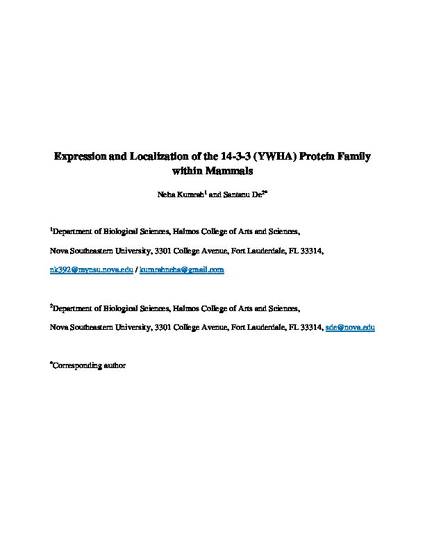
The 14-3-3 (YWHA) are a family of homologous, acidic, and highly conserved proteins expressed abundantly and ubiquitously in a wide array of organisms ranging from plants to animals, including humans, which regulate important cellular events. Within mammals, seven isoforms of 14-3-3 exist: β, γ, ε, ζ, η, τ, and σ (stratifin), each of which is encoded by a unique gene. Studies have shown similar expression patterns among mammalian species. The 14-3-3 proteins are commonly expressed and have proven to play critical roles in proper cellular localization, function, and homeostatic regulation. Numerous researchers have investigated the expression and localization patterns of the protein family. This review article aims to summarize prominent expression and localization patterns of the 14-3-3 proteins in a wide range of mammalian species, cell lines, developmental stages, and disease states. The study of these proteins has many implications, ranging from development to pathology. The information presented suggests that expression levels of this protein family may be useful in the diagnosis, and potentially even treatment, of many diseases.
Available at: http://works.bepress.com/santanu-de/41/
